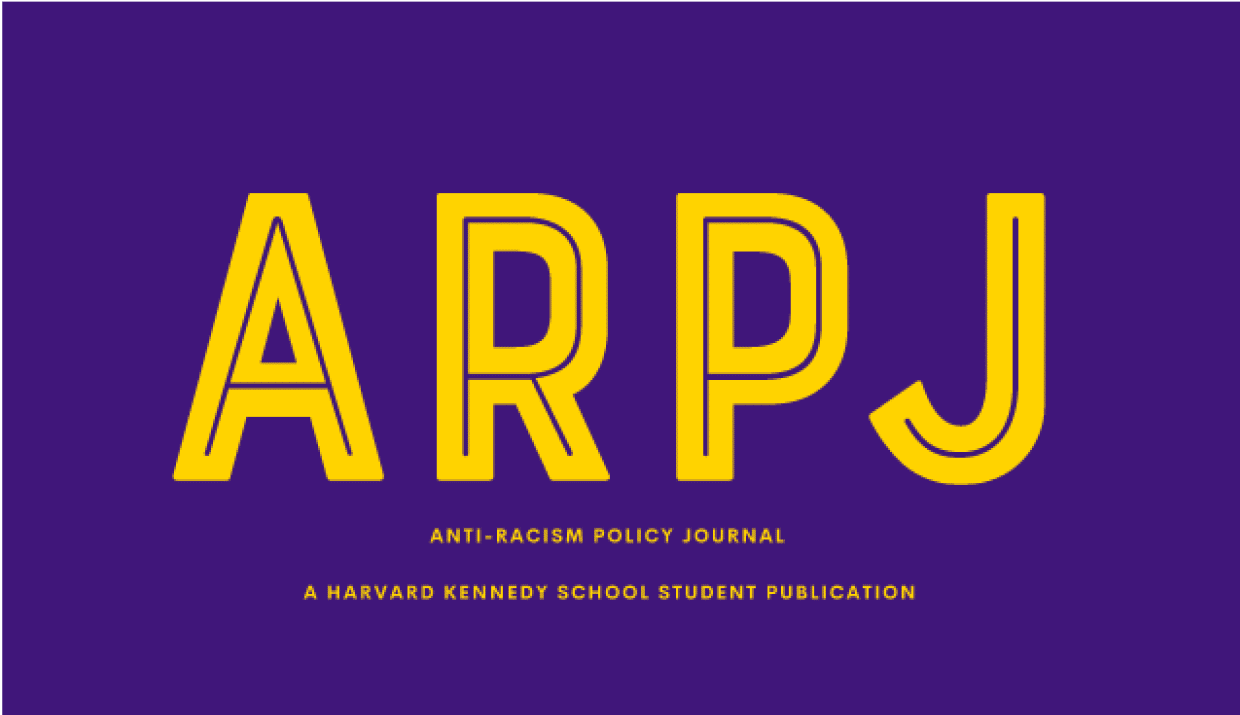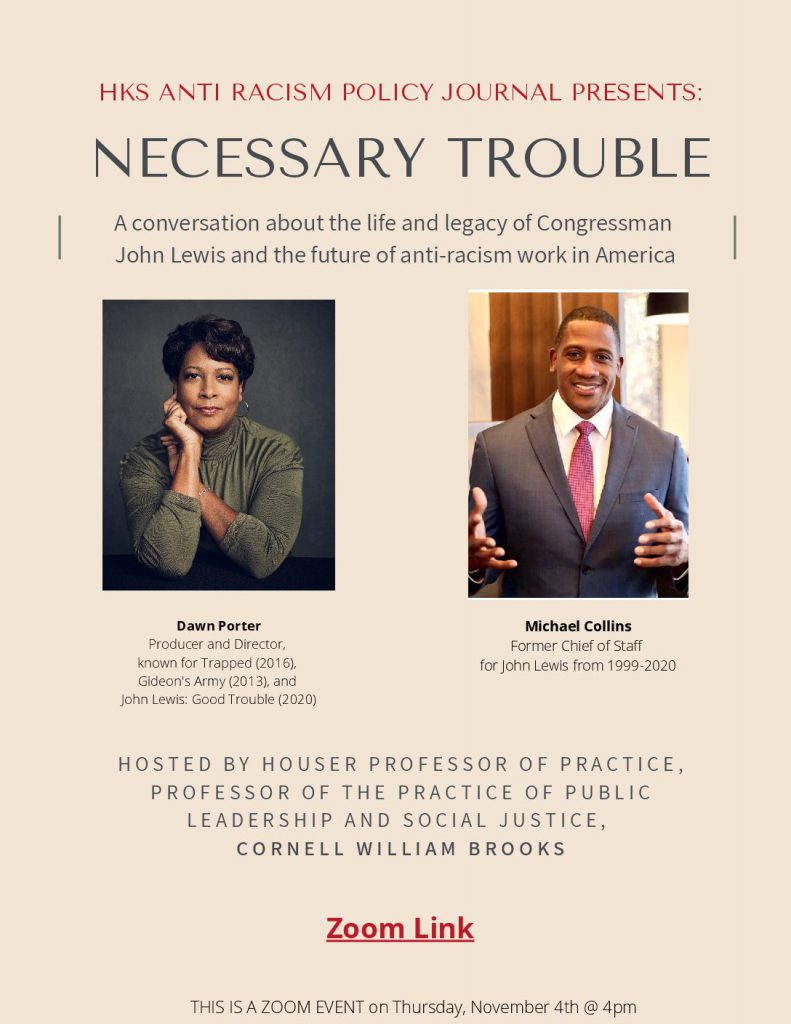

Anti-Racism Policy Journal
The Harvard Kennedy School Anti-Racist Policy Journal (ARPJ) explored the intersection of anti-racism and policy, the history of race and colonialism (and their impacts on modern policymaking), visions for a just and equitable future, and commentary, analysis, and perspective from thought leaders and subject matter experts.
Explore all Articles
filter by–Topic
filter by–Region
filter by–Country
search by–Keyword

Harvard Kennedy School 2021 Diversity Report
12.29.21
Harvard Kennedy School 2021 Diversity Report

Claiming My Identity’s Journey
12.27.21
This piece is a continuation of the Anti-Racism Policy Journal’s collaboration with Collateral Benefits.

A Lexicon for Climate Justice
12.20.21
*Excerpt from a piece that will be published in the print/and digital editions of The Anti-Racism Policy Journal*
A Lexicon for Climate Justice

From Paris to Death and Chaos
12.19.21
“The Anti-Racism Policy Journal is happy to partner with Collateral Benefits and Manos Visibles to bring you “Voices of the African Diaspora”, a series of perspectives from Afro-descendants across the world on surviving, overcoming, and transcending COVID-19. Collateral Benefits is a platform that through perspective papers aims to lift up the voices of African and Afro-descendant people from all walks of life so that their intellect, wisdom, and experiences can contribute to and shape the global conversations on the critical issues of our time.”
This piece is the first essay of the series we are publishing today.

WATCH: Necessary Trouble: A Conversation on the Life and Legacy of Congressman John Lewis
11.24.21
On the 35th anniversary of John Lewis’ first congressional electoral victory, the Anti-Racism Policy Journal, a Harvard Kennedy School Publication, and the Harvard Center for Public Leadership celebrates the life and legacy of Congressman Lewis and the future of anti-racism work in America.

“Foundations: How to Do Better on Racial Equity?” Research Report and Recommendations
07.2.21
10 main observations, key challenges, best practices, and 7 recommendations innovatively presented thanks to 50 interviews of philanthropic leaders, to do better on racial equity.